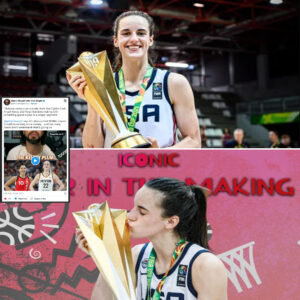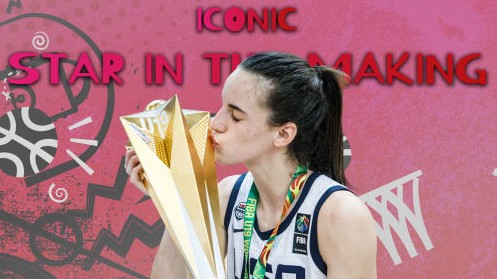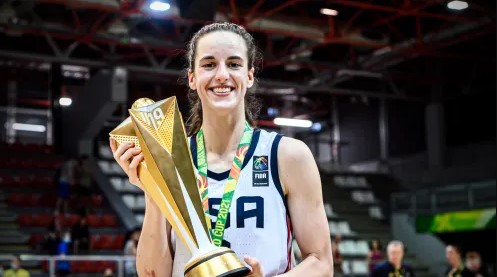Nick Wright Criticizes WNBA Salaries: “Caitlin Clark Earning $70,000 is a Joke”
By Charles Taudin
Last updated: July 23, 2025
3 min read
The ongoing collective bargaining agreement negotiations between the WNBA and its players have reached a critical juncture, with heated discussions surrounding salary structures and compensation packages that many believe are fundamentally inadequate for professional athletes of this caliber. Television personality and sports commentator Nick Wright has emerged as one of the most vocal critics of those who oppose salary increases for WNBA players, delivering scathing remarks that have ignited widespread debate across social media platforms and sports journalism circles.

During the recent WNBA All-Star Weekend, players made a powerful statement by wearing t-shirts emblazoned with the message “Pay us what you owe us” during their warm-up routines, a gesture that immediately captured national headlines and sparked intense conversations about gender pay equity in professional sports. This demonstration of solidarity among the league’s elite players represented their growing frustration with what they perceive as systemic undervaluation of their contributions to the sport and the entertainment industry as a whole.
Wright’s passionate defense of higher WNBA salaries came in response to critics who argue that current compensation levels are appropriate given the league’s financial realities and market dynamics. “The story here is how many people are genuine losers when it comes to understanding basic fairness and economic justice,” Wright declared during his television segment, his voice carrying unmistakable frustration with those who dismiss calls for salary reform.
The ESPN commentator specifically highlighted the absurdity of superstar rookie Caitlin Clark, along with other marquee players like Angel Reese and Paige Bueckers, earning approximately $70,000 annually despite generating millions of dollars in revenue, merchandise sales, and television viewership for their respective franchises. “Nobody serious is saying that WNBA players and NBA players should earn the same amount of money, but anybody with half a brain can see that these women are drastically underpaid for the value they bring to the table,” Wright emphasized, drawing attention to the stark disparity between player compensation and revenue generation.

The economic realities facing the WNBA present complex challenges that extend far beyond simple salary negotiations, as the league continues to operate at a financial loss despite growing popularity and increased television coverage across multiple networks. Since its inception in 1997, the women’s professional basketball league has struggled to achieve profitability, requiring continuous financial support from external investors, team ownership groups, and the NBA itself, which contributes approximately $10 million annually to keep the organization operational.
Market dynamics and revenue generation capabilities remain significant obstacles to implementing the 50% revenue sharing arrangement that many players and advocates are demanding, particularly when considering that the WNBA currently generates only about 42% of its total revenue independently. The remaining financial support comes from various sources including NBA subsidies, corporate sponsorships, and merchandise partnerships that often operate at reduced profit margins compared to their male counterpart leagues.
Critics of salary increases frequently point to attendance figures, television ratings, and merchandise sales as justification for current compensation levels, arguing that market forces should naturally determine player salaries based on consumer demand and revenue generation. However, Wright and other supporters of salary reform contend that this perspective fails to account for the significant barriers that have historically limited the growth potential of women’s professional sports, including inadequate marketing investments, scheduling conflicts with more established leagues, and deeply ingrained cultural biases.

The debate surrounding WNBA salaries reflects broader conversations about gender equity in professional athletics, workplace compensation, and the role that social responsibility should play in determining fair wages for elite performers. Wright’s inflammatory comments have successfully brought national attention to these issues, forcing sports fans, media personalities, and league executives to confront uncomfortable truths about how society values women’s athletic achievements compared to their male counterparts.
As collective bargaining negotiations continue throughout the remainder of the 2025 season, the outcome of these discussions will likely establish precedents that extend far beyond basketball, potentially influencing compensation structures across various women’s professional sports leagues and setting the stage for future battles over gender pay equity in athletic entertainment.